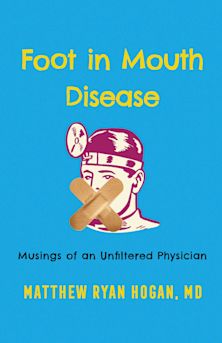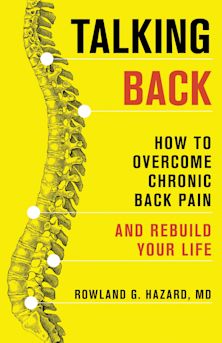The Slippery Slope of Healthcare
Why Bad Things Happen to Healthy Patients and How to Avoid Them
The Slippery Slope of Healthcare
Why Bad Things Happen to Healthy Patients and How to Avoid Them
This product is usually dispatched within 1 week
- Delivery and returns info
-
Free CA delivery on orders $40 or over
Description
Dr. Steven Kussin, physician and a pioneer in the Shared Decision movement, takes readers through the steps of how to avoid the many pitfalls of unnecessary and sometimes even dangerous medical care.
The American healthcare system is subsidized by its services to healthy people. The goal as it is for any business is to encourage people to become consumers by creating an emotionally-fueled demand for things that are suddenly and urgently needed. It’s hard to make healthy people well; it’s easy to make them sick.
Under the goal to make you even healthier, the medical industry identifies and encourages investigations and preventive technologies for ‘problems’ unlikely to occur, unlikely to harm, unlikely to benefit from testing, and, once diagnosed, unlikely to benefit from treatment.
Profitable services go on indefinitely for those who are young and well. For the health care industry being in good health is not just the best way to live; good health is also the slowest way to die.
Many people find themselves on what the author calls the Slippery Slope, experiencing a cascade of escalating misfortunes produced by more tests with incrementally greater risk, expense, and fewer benefits. Many people, who, in the attempt to improve what is already just fine, unquestioningly pay an immediate and visible price for what are distant, invisible, and uncertain benefits. The central starting point for initiating a Slippery Slope adventure can be the first blood test, the first screening test, the first x-ray, the first pill, or the first diagnosis that’s accepted by unwitting and trusting consumers.
The bottom of the Slippery Slope is occupied by those previously well but who now are damaged, and by others who suffered needless unscheduled deaths. America’s famed consumer skepticism when judging retail products is curiously and dangerously absent in their interactions within the healthcare system. Here, Steven Kussin offers strategies that give readers knowledge and power by offering unique perspectives, information, and resources.
He confronts the mighty forces arrayed against health care consumers and helps readers learn to identify them themselves. The power of money, the authority of science, the stature of physicians, the lure of elective health ‘improvements’, the promise of technology, and the pitch perfect, perfect pitches of televised ads all conspire to push people in directions that are often at odds with their stated priorities and interests.
This book is dedicated to one lesson: The view from atop the Slope, before making a health care decision, is better than the view from the bottom, after having made a bad one. For more information visit https://theslipperyslopebook.com/
Table of Contents
Introduction: The Slope
Chapter 1: Your Money or Your Life: Profit, Greed, and the Healthcare Colossus
Chapter 2: Science in Healthcare: The Beast Wears White
Chapter 3: Doctors—Love Them, Hate Them: You Can’t Live Without Them (or Can You?)
Chapter 4: YOU!
Chapter 5: Screening: Don’t Say No; Just Say Whoa!
Chapter 6: TV vs. MD
Chapter 7: Shared Decision Making
Notes
Index
About the Author
Product details
| Published | Mar 24 2020 |
|---|---|
| Format | Hardback |
| Edition | 1st |
| Extent | 336 |
| ISBN | 9781538121627 |
| Imprint | Rowman & Littlefield |
| Dimensions | 239 x 161 mm |
| Publisher | Bloomsbury Publishing |
Reviews

ONLINE RESOURCES
Bloomsbury Collections
This book is available on Bloomsbury Collections where your library has access.



































